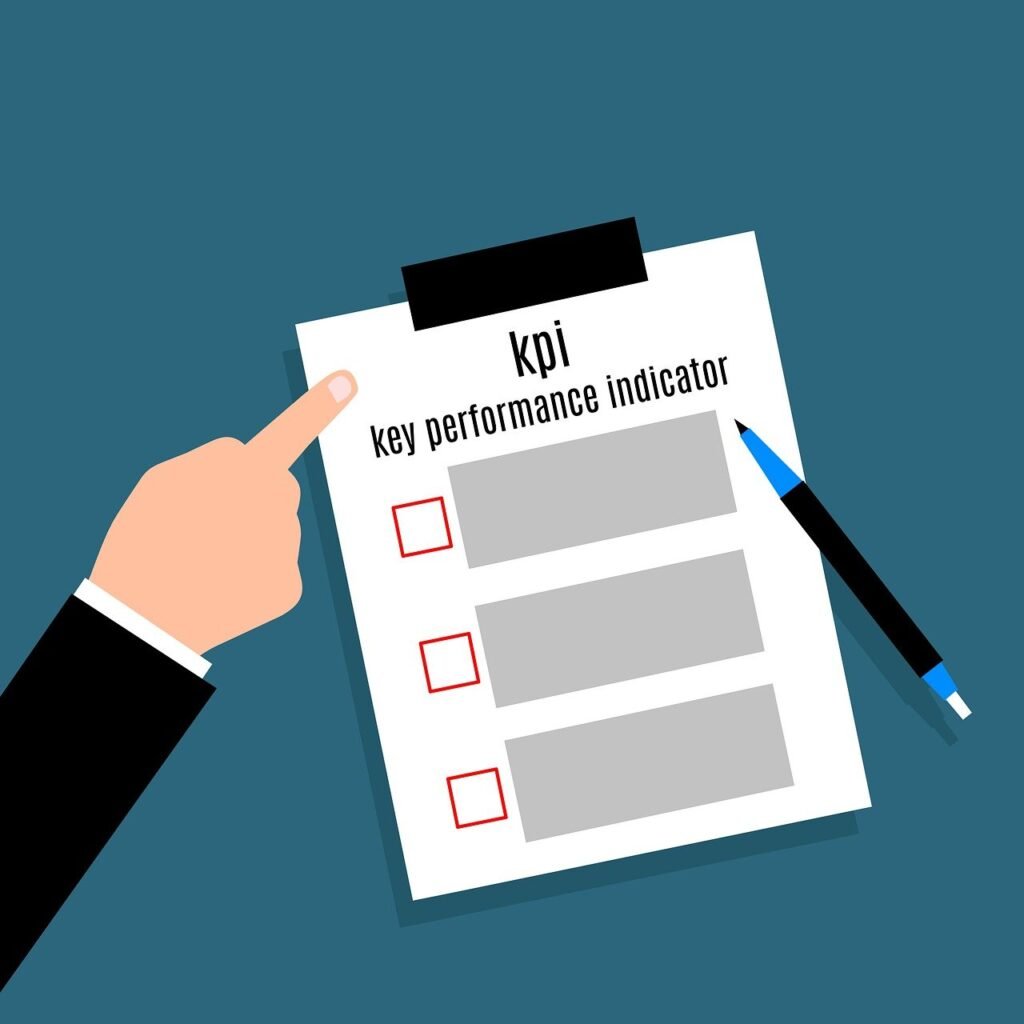This Article has been revised, edited and added to, by Poulomi Chakraborty.
- Chapter 1: Demystifying SEO Expenditure
- Keyword Research
- Content Creation
- Technical SEO
- The Strategic Importance of Keyword Research
- The Art of Resourceful Content Creation
- Harnessing Technical SEO for Enhanced Performance
- Prioritizing SEO Budget for Competitive Analysis
- Investing in Scalable SEO Practices
- Integrating SEO with Other Marketing Efforts
- Chapter 2: Strategizing Resource Allocation
- On-Page SEO
- Link Building
- Analytics and Tracking
- Tailoring SEO Investments to Business Goals
- Enhancing On-Page SEO Through Strategic Design
- Building Relationships Through Link Acquisition
- Developing a Flexible SEO Resource Management Plan
- Leveraging Local SEO for Geographic Targeting
- Integrating Advanced Technologies into SEO Practices
- Chapter 3: From Plans to Action
- Hiring the Right Talent
- Utilizing SEO Tools
- Continuous Learning and Adaptation
- Aligning SEO Actions with Market Dynamics
- Optimizing Team Collaboration for SEO Execution
- Emphasizing Quality over Quantity in Content Production
- Streamlining SEO Processes with Automation
- Integrating User Feedback into SEO Refinement
- Chapter 4: Measuring, Analyzing, and Optimizing Investments
- Chapter 5: Future Trends and Scaling Strategies
- Chapter 6: Advanced Analytics and Data Insights
- Chapter 7: Security and Compliance in SEO
- Conclusion: The Living Blueprint
In the bustling digital marketplace, standing out isn’t just about having an innovative product or an alluring service—it’s primarily about being seen and heard. For startups, the challenge is two-fold: innovating and then showcasing that innovation to the world. That’s where the power of SEO leaps into action. However, SEO isn’t just a strategic endeavor; it’s a financial one. Each strategy, each tactic, each move to climb up the search engine rankings requires resources. In this detailed guide titled “Allocating Resources: Creating a Comprehensive SEO Budget Plan,” we’ll take you on a well-navigated journey from the rudiments to the nuances of crafting an SEO budget that’s not just efficient but powerfully effective.
SEO budgeting isn’t about spreading resources thinly across multiple channels, hoping something sticks. It’s a well-articulated plan, a calculated approach where every penny spent is a deliberate step towards increased visibility, traffic, and conversions. How does a startup with finite resources navigate this intricate journey? Let’s find out.
Chapter 1: Demystifying SEO Expenditure

Diving into the world of SEO without a roadmap is akin to setting sail in uncharted waters without a compass. It’s not just about making a journey but ensuring that journey leads to a destination of growth and visibility. In this chapter, we peel back the layers of SEO expenditure, illuminating the critical components that should be the focus of your budget.
Keyword Research
The cornerstone of SEO lies in identifying the right words and phrases that your potential customers are using. But this isn’t a guessing game. Resources need to be allocated to detailed keyword research. It’s an investment into understanding the language of your audience, ensuring your website speaks in a tone that’s both audible and understandable in the crowded digital space.
Content Creation
A website without content is like a library devoid of books. Your content is the substance that attracts, engages, and retains visitors. However, churning out content haphazardly isn’t the solution. Here, we look at the necessity of investing in quality content that’s not just rich in information but optimized for SEO.
Technical SEO
In the silent corridors of your website’s backend lies the power of technical SEO. We focus on the allocation of resources to enhance site speed, mobile optimization, and overall user experience. It’s the silent yet potent force that ensures your website isn’t just attractive but functional and user-friendly.
The Strategic Importance of Keyword Research
The cornerstone of SEO lies in identifying the right words and phrases that your potential customers are using. But this isn’t a guessing game. Resources need to be allocated to detailed keyword research. It’s an investment into understanding the language of your audience, ensuring your website speaks in a tone that’s both audible and understandable in the crowded digital space.
The Art of Resourceful Content Creation
A website without content is like a library devoid of books. Your content is the substance that attracts, engages, and retains visitors. However, churning out content haphazardly isn’t the solution. Here, we look at the necessity of investing in quality content that’s not just rich in information but optimized for SEO.
Harnessing Technical SEO for Enhanced Performance
In the silent corridors of your website’s backend lies the power of technical SEO. We focus on the allocation of resources to enhance site speed, mobile optimization, and overall user experience. It’s the silent yet potent force that ensures your website isn’t just attractive but functional and user-friendly.
Prioritizing SEO Budget for Competitive Analysis
Understanding the competitive landscape is crucial for effectively positioning your startup in the market. Allocating budget for competitive analysis tools and services helps you gain insights into the SEO strategies employed by your competitors. This knowledge allows you to identify gaps in your own strategy and opportunities for differentiation. By analyzing the strengths and weaknesses of competitors’ SEO efforts, you can tailor your budget to focus on areas that will give you the best competitive edge.
Investing in Scalable SEO Practices
As your startup grows, your SEO strategies should scale accordingly. This means investing in SEO practices that are not only effective at your current size but can be expanded as your business expands. Consider adopting flexible SEO platforms and tools that can accommodate increased traffic, more complex website structures, and greater content volume without requiring a complete overhaul of your SEO strategy.
Integrating SEO with Other Marketing Efforts
SEO should not exist in a vacuum. Integrating your SEO strategy with other marketing efforts such as social media, email marketing, and paid advertising can amplify your visibility and impact. Budgeting for integrated marketing management tools or cross-training your marketing team in SEO and other disciplines can enhance the synergy between channels, leading to a more cohesive and effective marketing strategy.
Chapter 2: Strategizing Resource Allocation

In this phase of our exploration, we delve deeper into the art and science of distributing resources adeptly, ensuring each element of SEO not only receives attention but the right proportion of financial input to yield optimal outcomes.
On-Page SEO
The beauty and functionality of each page on your website contribute to the overall user experience and SEO performance. Resources are essential for optimizing headings, images, meta tags, and the intricate elements that make your pages not only readable but engaging and SEO-friendly.
Link Building
The digital space is interconnected. Here, we focus on the resource allocation for building quality backlinks. It’s not about the quantity but the quality and relevance of the links that point back to your website, accentuating your credibility and authority in the digital space.
Analytics and Tracking
You can’t improve what you can’t measure. In this section, we delve into the importance of setting aside resources for analytics and tracking. It’s about having the tools and expertise to gather data, interpret it, and glean insights that inform strategic refinements.
Tailoring SEO Investments to Business Goals
Central to strategic resource allocation is aligning your SEO efforts with your overarching business objectives. This alignment ensures that every SEO activity, from keyword targeting to link building, directly supports your business’s growth targets, market expansion plans, or customer engagement goals. It’s crucial to define what success looks like for your startup and use this vision to direct your SEO budgeting decisions.
Enhancing On-Page SEO Through Strategic Design
The beauty and functionality of each page on your website contribute to the overall user experience and SEO performance. Optimizing your website’s design and content layout not only improves user engagement but also enhances the effectiveness of your SEO efforts. Investing in a website design that balances aesthetics with SEO-friendly architecture can drastically improve your site’s visibility and user interaction rates.
Building Relationships Through Link Acquisition
In the interconnected world of digital marketing, the strength of your network can significantly boost your SEO results. Allocating resources to build relationships with other reputable businesses and websites can lead to more natural and beneficial link-building opportunities. Consider investing in community outreach, partnership development, and guest blogging as ways to build these vital connections.
Developing a Flexible SEO Resource Management Plan
Resource allocation for SEO should not be rigid. The digital landscape is constantly changing, and your allocation strategy needs to be flexible enough to adapt to these changes. Allocating a portion of your budget to unforeseen SEO opportunities or challenges allows you to respond quickly to algorithm updates, new SEO trends, and shifts in user behavior without disrupting your overall marketing budget.
Leveraging Local SEO for Geographic Targeting
For startups focusing on a specific geographic area, local SEO can be a game-changer. Allocating resources to optimize for local search queries, including local business listings and location-specific content, can enhance your visibility to a targeted local audience. This strategy is particularly effective for businesses with physical locations or those serving specific communities.
Integrating Advanced Technologies into SEO Practices
As technology evolves, so too should your SEO strategies. Allocating resources to emerging technologies like AI-driven content creation or advanced predictive analytics can provide you with a competitive edge in keyword optimization and trend analysis. These technologies can automate routine tasks, uncover new insights, and enable more personalized content strategies, making your SEO efforts more effective and efficient.

Related: Check out our free SEO suite

Chapter 3: From Plans to Action
SEO budgeting morphs from a static blueprint into a dynamic action plan in this chapter. We focus on the methodology to transition from allocating resources to utilizing them effectively, ensuring every dollar spent translates into tangible SEO growth.
Hiring the Right Talent
The human element is pivotal. We emphasize investing in hiring skilled professionals who bring not just technical expertise but creative innovation. It’s about ensuring that the strategies are executed with precision and creativity, striking a balance between analytical rigor and imaginative flair.
Utilizing SEO Tools

In the world infused with technology, SEO tools are the companions that can make the journey not just easier but more effective. We focus on investing in tools that offer insights, analytics, and automation, ensuring each SEO task is executed with optimal efficiency and effectiveness.
Continuous Learning and Adaptation
The digital landscape is ever-evolving. Resources should be earmarked for continuous learning and adaptation. It’s an investment in staying updated with the latest trends, algorithm changes, and innovations in the SEO space.
Aligning SEO Actions with Market Dynamics
Understanding market dynamics is crucial to effectively putting your SEO plans into action. This requires not just a keen observation of market trends but also an agile response to them. Investing in real-time market analysis tools can help your startup quickly adapt its SEO strategy in response to changing market conditions. This proactive approach ensures that your SEO efforts are always aligned with current market opportunities and challenges.
Optimizing Team Collaboration for SEO Execution
Effective execution of an SEO plan requires seamless collaboration across various teams in your organization. From content creators and SEO specialists to web developers and marketers, each team plays a pivotal role in implementing the SEO strategy. Investing in collaborative tools and cross-functional training can enhance team synergy, ensuring that SEO actions are executed smoothly and cohesively across departments.
Emphasizing Quality over Quantity in Content Production
As you move from planning to action, focus on producing high-quality content that resonates with your audience and adheres to SEO best practices. This involves more than just keyword insertion; it requires creating valuable content that engages, informs, and converts. Allocating resources to professional content creation services or experienced SEO copywriters can elevate the quality of your content, making it a powerful tool in your SEO arsenal.
Streamlining SEO Processes with Automation
Leveraging automation in SEO can significantly enhance the efficiency and effectiveness of your campaigns. By automating repetitive tasks such as keyword research, backlink analysis, and SEO reporting, you free up valuable time and resources that can be redirected towards more strategic SEO initiatives. Investing in robust SEO automation tools not only streamlines processes but also provides more accurate and timely data for decision-making.
Integrating User Feedback into SEO Refinement
User feedback is a vital component of effective SEO. It provides insights into what is working and what isn’t from the user’s perspective. Implementing mechanisms to capture user feedback on your website and social media channels can provide direct input into the refinement of your SEO strategies. Allocating resources to develop and maintain these feedback channels can help you continuously improve your SEO efforts based on real user experiences.
Chapter 4: Measuring, Analyzing, and Optimizing Investments
With the allocation and strategic execution well underway, attention shifts towards assessing the impact. In this segment, we unveil the process of transforming raw data into insightful narratives that not only measure the effectiveness but forge pathways for optimization.
Key Performance Indicators (KPIs)

Here, we place emphasis on identifying and monitoring KPIs that align with your SEO goals. Every dollar spent is tracked and assessed, linking investments to outcomes, ensuring clarity on the ROI.
Analytics Deep Dive
The intricate world of analytics is demystified. We explore practical steps to harness data, converting numbers into actionable insights that can inform strategic adjustments, ensuring your SEO budget delivers maximal impact.
SEO Audit
Regular SEO audits emerge as the cornerstone of optimization. It’s about evaluating the performance, identifying gaps, and making informed adjustments to ensure the SEO budget remains a catalyst for growth, adapting to the dynamic digital ecosystem.
Establishing Comprehensive Performance Metrics
To truly understand the impact of your SEO investments, it’s essential to establish a comprehensive set of performance metrics that go beyond surface-level analytics such as traffic and page views. These should include engagement metrics like session duration and bounce rates, conversion rates, and the SEO return on investment (ROI). These metrics provide a deeper insight into how well your SEO efforts are translating into actual business value.
Implementing Dynamic Reporting Systems
Creating dynamic reporting systems that can provide real-time feedback on your SEO strategies is crucial for timely decision-making. Invest in advanced SEO analytics tools that allow you to create customizable dashboards and reports. This enables you to monitor your performance continuously and adjust your strategies as needed to optimize outcomes. By having these systems in place, you can quickly identify trends and make data-driven decisions that enhance your SEO impact.
Conducting Regular SEO Health Checks
Regular SEO health checks are vital to ensure that your strategies remain effective and your site complies with the latest search engine guidelines. These checks should involve a thorough analysis of your website’s structure, content quality, link health, and compliance with SEO best practices. By scheduling regular audits, you can identify and rectify issues before they impact your rankings or user experience.
Leveraging Advanced Analytical Techniques
To delve deeper into the effectiveness of your SEO strategies, leverage advanced analytical techniques such as predictive analytics and machine learning. These technologies can help you understand potential future trends and prepare your SEO strategy accordingly. They also allow for the modeling of different SEO scenarios to predict potential outcomes, helping you to allocate resources more efficiently and with greater impact.
Fostering a Culture of Continuous Improvement
Optimizing your SEO investments is not a one-time task but a continuous process of improvement. Fostering a culture where data is regularly reviewed and strategies are frequently adjusted can lead to sustained success. Encourage your team to experiment with new SEO tactics and technologies, learn from the outcomes, and refine approaches continually. This culture of innovation and flexibility can be a significant competitive advantage in the dynamic digital landscape.
Chapter 5: Future Trends and Scaling Strategies

As we ascend into the future landscapes of SEO, adaptability and foresight become central. This chapter is dedicated to preparing startups to not just navigate the present but to anticipate and master future SEO trends, ensuring that the budget is not just adequate but advanced and forward-looking.
AI and Machine Learning
The infusion of AI in SEO is more than a trend—it’s the future. We delve into strategies to allocate resources to AI-powered tools and technologies that promise personalized user experiences, predictive analytics, and automation, ensuring your SEO strategies are not just current but futuristic.
Voice Search Optimization
As the voice search wave surmounts, being prepared is no longer optional. We explore how to budget for and implement strategies to optimize for voice search, ensuring your online presence is attuned to the evolving user search behaviors.
Mobile-First Optimization
With mobile dominance, optimization strategies shift gears. Resources are channelized to ensure mobile optimization is not an afterthought but central to the SEO strategy, mirroring the user shift towards mobile interfaces.
Embracing Emerging Technologies for Enhanced SEO
The future of SEO is tightly intertwined with emerging technologies that promise to transform how we approach optimization. Startups should consider investing in technologies like artificial intelligence (AI) and machine learning for predictive analytics and automation. These tools can personalize user experiences and improve decision-making processes by analyzing data at a scale and speed unachievable by human analysts.
Preparing for the Evolution of Search Engines
Search engines are continuously evolving, and keeping abreast of these changes is crucial for maintaining and improving your SEO standings. This involves not only monitoring updates to search engine algorithms but also preparing for broader changes in the digital search landscape, such as the increasing use of voice search and visual search technologies. Allocating resources to optimize for these new search modes can position your startup ahead of the curve.
Developing a Robust Mobile-First Strategy
The dominance of mobile browsing demands a mobile-first approach to SEO. This strategy should go beyond basic responsiveness to ensure that mobile user experiences are optimized for engagement and conversion. Investing in advanced mobile SEO tactics, such as accelerated mobile pages (AMP) and mobile-specific content optimization, can significantly improve your visibility and user engagement on mobile devices.
Enhancing Personalization Through Data Analytics
As personalization becomes increasingly important in SEO, startups need to leverage data analytics to tailor content and marketing strategies to individual user preferences and behaviors. This means investing in sophisticated data collection and analysis tools that can segment audiences more effectively and craft messages that resonate on a personal level. Personalization can dramatically increase the effectiveness of your SEO by enhancing user engagement and loyalty.
Integrating SEO with Other Business Areas
SEO should not be an isolated part of your marketing strategy but integrated across various business functions, including sales, customer service, and product development. This holistic approach ensures that SEO insights contribute to broader business decisions and that other business functions support SEO goals. Consider cross-functional teams and integrated data systems to enhance this synergy.
Chapter 6: Advanced Analytics and Data Insights
As we further untangle the intricate tapestry of SEO, the spotlight shines on advanced analytics. In this phase, a granular approach to data becomes pivotal, transforming generic insights into highly customized data narratives.
User Behavior Analytics
Understanding user behavior transforms SEO from a technical task to a user-centric strategy. We unravel the allocation of resources to tools and technologies that offer deep insights into user behaviors, preferences, and interactions.
Conversion Optimization
Traffic is a means to an end, with conversion being the ultimate goal. We focus on the strategic allocation of the budget to conversion optimization strategies ensuring that visibility translates into engagement and conversions.
Enhancing Decision-Making with Big Data
The application of big data in SEO provides an opportunity to harness vast amounts of information to uncover patterns and trends that traditional analytics might miss. Startups should consider investing in big data platforms that can process and analyze large datasets from various sources, including web traffic, social media interactions, and customer behavior across devices. This level of analysis can provide a more nuanced understanding of SEO performance and user engagement, informing more targeted and effective SEO strategies.
Utilizing Predictive Analytics for Proactive SEO
Predictive analytics is a game-changer in how startups can anticipate market trends and user behaviors. By applying machine learning algorithms to historical data, startups can predict future trends in keywords, content preferences, and user engagement. This proactive approach allows for the optimization of SEO strategies before changes in trends become apparent, providing a competitive edge in the market.
Implementing Real-Time Analytics for Immediate Insights
Real-time analytics tools can dramatically enhance a startup’s ability to respond swiftly to changes in user behavior or SEO performance. By monitoring web traffic and engagement metrics in real time, startups can quickly identify and react to issues such as a drop in page views or poor performance of a specific campaign. Investing in real-time analytics enables immediate adjustments to SEO tactics, ensuring optimal performance at all times.
Integrating Cross-Channel Analytics for a Holistic View
Cross-channel analytics provide a comprehensive view of how different marketing channels interact and contribute to SEO success. By integrating data from social media, email marketing, paid ads, and organic search, startups can gain a holistic understanding of their marketing efforts and how they interplay to affect SEO outcomes. This integrated approach helps in allocating resources more effectively and in optimizing cross-channel strategies to support SEO goals.
Customizing User Experience with Behavioral Analytics
Behavioral analytics focuses on how individual users interact with your website, providing insights into their preferences, navigation patterns, and overall engagement. Utilizing this data allows startups to customize user experiences, tailor content, and optimize user journeys to increase conversion rates and enhance SEO performance. Investing in advanced behavioral analytics tools can transform a standard SEO strategy into a user-centered powerhouse driving greater ROI.
Chapter 7: Security and Compliance in SEO
In this additional section, we dive into often overlooked yet critical aspects of SEO – security and compliance. Given the rise in cybersecurity threats and the stringent regulatory environment, allocating resources to these areas is not just a need but a necessity.
Cybersecurity Protocols
We unfold the importance of investing in robust cybersecurity protocols to safeguard your website’s integrity. The allocation of resources to secure the site from hacks, data breaches, and malware is not just about protecting the site but about safeguarding the brand’s reputation.
SEO Compliance
Navigating the complex regulatory landscape becomes another focus. Resources need to be earmarked for ensuring SEO practices comply with legal regulations, including data protection, privacy, and consent. It’s an investment in risk mitigation and brand credibility.
Prioritizing Web Security in SEO Efforts
Security is a cornerstone of trustworthy SEO practices. Startups must prioritize web security to protect against vulnerabilities that could not only compromise user data but also negatively impact search engine rankings. Implementing robust security measures such as HTTPS, secure sockets layer (SSL) certificates, and regular security audits should be seen as fundamental components of your SEO strategy. These measures not only safeguard your site but also reassure users and search engines of your site’s legitimacy and safety.
Ensuring SEO Compliance with Global Regulations
As search engines and governments tighten their grip on data protection, compliance becomes a pivotal part of SEO strategies. It is crucial for startups to understand and adhere to regulations such as the General Data Protection Regulation (GDPR) in Europe or the California Consumer Privacy Act (CCPA) in the U.S.
This involves ensuring that all SEO activities, especially those related to data collection and user tracking, are compliant with these laws. Non-compliance can lead to severe penalties and a loss of user trust, which can be devastating for any startup.
Integrating Accessibility into SEO
Accessibility should not be an afterthought in SEO strategies. Making your website accessible to all users, including those with disabilities, is not only a moral imperative but also a compliance requirement under laws like the Americans with Disabilities Act (ADA).
Search engines increasingly favor websites that provide a better user experience, and accessibility is a significant factor. Implementing SEO tactics that enhance accessibility, such as alt text for images, readable fonts, and keyboard navigation, can improve your site’s usability and SEO performance.
Adopting Ethical SEO Practices
Ethical SEO practices are critical not only for compliance but for sustaining long-term growth. Startups should avoid ‘black-hat’ SEO tactics such as keyword stuffing, cloaking, or using private link networks. Instead, focus on ‘white-hat’ strategies that align with search engine guidelines. Investing in ethical SEO practices enhances your reputation with both users and search engines and ensures your SEO success is durable and not just a temporary gain.
Monitoring and Adapting to Changing SEO Regulations
The landscape of SEO and its associated regulations is constantly evolving. Staying informed about the latest updates in SEO guidelines and regulatory changes is crucial. Allocating resources for ongoing education and training in these areas can help your team remain compliant and ahead of the curve. Regular updates to your SEO strategies in response to these changes can prevent penalties and optimize your site’s performance.
Conclusion: The Living Blueprint
As we draw the curtains, SEO budgeting emerges not as a task completed but a living entity, ever-evolving. It’s a strategic ally that startups need to nurture, refine, and evolve. Every allocation, every strategy, every analysis is a step, not just towards optimizing the budget but optimizing the brand’s digital narrative. In the world where the digital and physical converge, where the lines between online and offline blur, SEO budgeting becomes a bridge. It’s a strategic pathway that ensures startups are not just visible but vibrant, not just present but prominent, and not just existent but exponential.
As your eyes hover over the last lines of this expansive narrative, it’s an invitation to reflection. An opportunity to assess, analyze, and anticipate how your startup can not only navigate the SEO journey but master it. Every word, every insight, every strategy unveiled is a beacon illuminating your unique pathway in the intricate, mesmerizing, and boundless digital universe.
Read Next:
- Using Google Trends for Trending Keyword Opportunities
- How to Use Seed Keywords to Expand Your Startup
- Creating a Keyword Research Workflow for Startup Success
- Keyword Research Tools Comparison: Which One is Right for Startups?
- Google Search Console: Leveraging Data for Startup Keyword Insights



















Comments are closed.